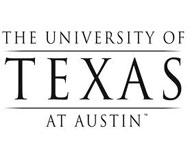Faculty News
—
Prof. Roy Smith on the banking industry
—
Excerpt from Bloomberg -- “Everybody who’s been negative on the banks has been right, and if you’re positive on the banks you’re taking a risk." Additional coverage appeared in Bloomberg Businessweek, China Daily and Money Morning.
Faculty News
—
Excerpt from Bloomberg -- “Everybody who’s been negative on the banks has been right, and if you’re positive on the banks you’re taking a risk." Additional coverage appeared in Bloomberg Businessweek, China Daily and Money Morning.




















